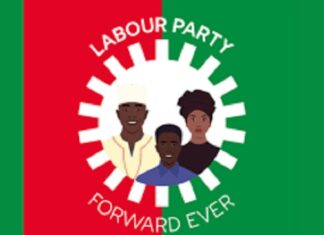The Managing Director of Afrinvest, Mr Ike Chioke, has said that the oil sector still remains a challenge to the Nigerian economy, despite the positive posture of the economy last year amid Coronavirus Disease infections.
Chioke said on AIT show, ‘MoneyLineWithNancy’ recently, “The oil sector is an area the country needs to get right. Obviously, it has a bigger challenge for the economy and the health of the economy. As an oil economy nation, if the oil sector is not growing, then it is contracting.”
According to the Afrinvest MD, it is great signing the Petroleum Industry Act, but “the devil is in the detail when it comes to implementation.”
He, however, urged the government to work with it and see how it works out in the next few months.
Chioke stated that “hydra-headed monsters” that affected the country’s economy in 2021 included fuel, power and foreign exchange subsidies, arguing that the rich people benefit much more from the fuel subsidy.
“For someone that has a house in Abuja, Lagos and their hometown, and probably has two or three cars in each location, he is the one that benefits from fuel subsidy because he is buying it at a discounted rate. But for someone that is in a bus carrying 14 passengers, the biggest problem for that bus is not fuel subsidy, but the quality of the road. If he hits a bump and one of the silencers goes down, that is far more expensive than the cost of fuel to transport those passengers,” he explained.
He argued that the country could be creating a bigger problem by removing fuel subsidy and replacing it with N5,000 cash transfer, as the issues such as transparency and equity will come into play.
His words, “What is clear in black and white is that putting money in fuel subsidies is a waste of resources. Why not in healthcare and education?”
Chioke alleged that Nigerian leaders had long broken the social contract and failed to fix it.
READ ALSO: Buhari seeks amendment to Petroleum Industry Act to reflect balanced geopolitical representation
“That tells you that there is a difference between those in government and the rest of us. So, to re-engage Nigerians, we must come back and reconnect our social contract.
“It is the same thing like a family. If husband and wife spend all their income going to parties and travelling overseas, and the kids are not going to school, they don’t have healthcare or get enough love and attention, they will eventually behave strangely to the parents. That connection needs to be put back in there.”
On how the Nigerian economy fared in 2021 and the projection for 2022, he said the assumptions for 2022 were not unreasonable, but would face some global and national bottlenecks.
“Coming into 2022, what we have seen is that one key barometre for growth is the ability of the economy to attract foreign exchange on its own. If investors are coming in at a certain exchange rate and are not sure what rate they are going out with, they probably stand on the fence,” Chioke said.
He advised that going into 2022, a pre-election year, the government should think of leaving legacy behind and work to fulfil President Muhammadu Buhari’s promise of fixing insecurity, corruption and the economy.
“If he (Buhari) wants to do something remarkable in 2022, he can organise a Sovereign National Conference or revisit the one convoked by former President Goodluck Jonathan.
“Looking at 2022, I remain optimistic that Nigeria will get better,” Chioke said.
While hailing the records posted by the non-oil sector, he, however, noted that the sector is constrained by other endemic issues like insecurity, which not only hampers the movement of goods and services, but also creates cost factors for businesses to survive.
“If you think about what this insecurity is doing to our farmland, it means that we are not able to farm, we can’t harvest food. Staple food is becoming more difficult for the average Nigerians and it puts pressure on inflation.
“Those are challenges that we can tackle to make the non-oil sector even more resilient and robust,” Chioke added.













